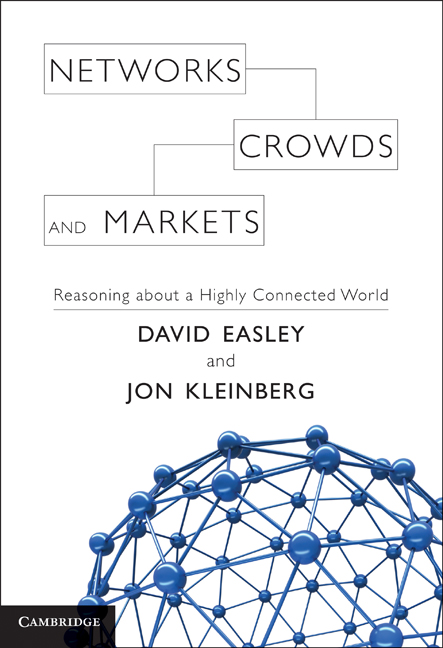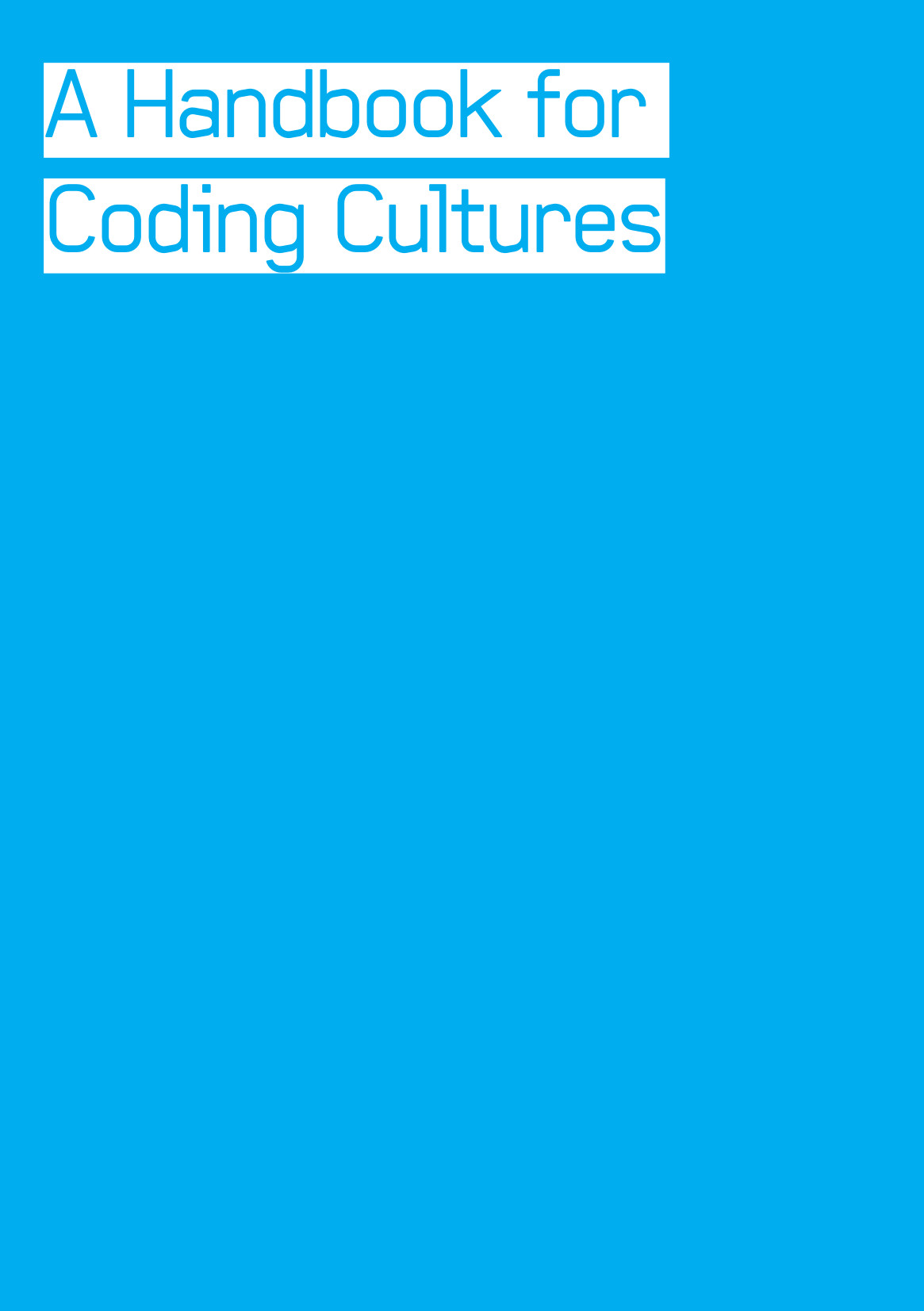David Easley, Jon Kleinberg: Networks, Crowds, and Markets: Reasoning About a Highly Connected World (2010)
Filed under book | Tags: · game theory, graph theory, intellectual property, mathematics, networks, web 2.0

Are all film stars linked to Kevin Bacon? Why do the stock markets rise and fall sharply on the strength of a vague rumour? How does gossip spread so quickly? Are we all related through six degrees of separation? There is a growing awareness of the complex networks that pervade modern society. We see them in the rapid growth of the Internet, the ease of global communication, the swift spread of news and information, and in the way epidemics and financial crises develop with startling speed and intensity. This introductory book on the new science of networks takes an interdisciplinary approach, using economics, sociology, computing, information science and applied mathematics to address fundamental questions about the links that connect us, and the ways that our decisions can have consequences for others.
Publisher Cambridge University Press, 2010
ISBN 0521195330, 9780521195331
736 pages
Francesca da Rimini (ed.): A Handbook for Coding Cultures (2007)
Filed under book | Tags: · code, digital culture, floss, media culture, networks, open source, software

“A Handbook for Coding Cultures provides a lasting companion to the inspiring projects and topical currents of thought explored in the Coding Cultures Symposium and Concept Lab. Six invited writers and groups from Australia, Belgium, Brazil, England, Italy and Hong Kong share their experiences of building imaginative digital tools, social networks, open labs and internet-based knowledge platforms for communication and creativity. Complementing these commissioned texts are contributions from our guest artists from Canada, England and Jamaica. Artist statements from Symposium speakers completes this snapshot of contemporary cultural practice.”
Publisher d/Lux/MediaArts and Campbelltown Arts Centre, Sydney, 2007
d/Lux/Editions/02
ISBN 9780975136935
PDF, PDF (3 MB, updated on 2018-7-10)
Comments (3)Bernard Stiegler: Technics and Time, 2: Disorientation (1996–) [FR, EN, ES]
Filed under book | Tags: · consciousness, deterritorialization, memory, metaphysics, phenomenology, philosophy, philosophy of technology, technology

“Disorientation is the first publication in English of the second volume of Technics and Time, in which French philosopher Bernard Stiegler engages in a close dialogue with Husserl, Derrida, and other philosophers who have devoted their energies to technics, such as Heidegger and Simondon. The author’s broad intent is to respond to Western philosophy’s historical exclusion of technics and techniques from its metaphysical questionings, and in so doing to rescue critical and philosophical thinking. For many years, Stiegler has explored the origins and philosophical, ethical, and political stakes of a global process he calls ‘the industrial temporalization of consciousness.’ Here, demonstrating that technology—including alphabetical writing—is memory, he argues that through new technologies of retention and inscription we have come to live in a world where time devours space, a disoriented world in which we have lost our bearings. Immersed in the multimedia of an over-connected world, with time and space as we know them abolished, we no longer find ‘cardinal points’ to guide us and may even be led where we do not wish to go. We must therefore prepare to confront new spheres of ideological control and discover new possibilities in the digital environment.”
Publisher Galilée, Paris, 1996
English edition
Translated by Stephen Barker
Publisher Stanford University Press, 2009
Meridian: Crossing Aesthetics series
ISBN 0804730121, 9780804730129
288 pages
Publisher (EN)
La Technique et le temps 2. La Désorientation (French, 1996, updated on 2012-7-19)
Technics and Time, 2: Disorientation (English, 2009, updated on 2020-8-7)
La tecnica y el tiempo, II. La desorientacion (Spanish, updated on 2012-7-19)

